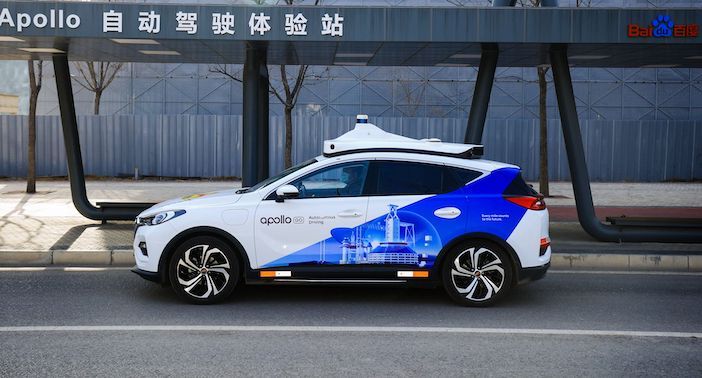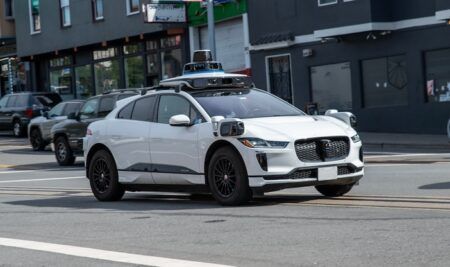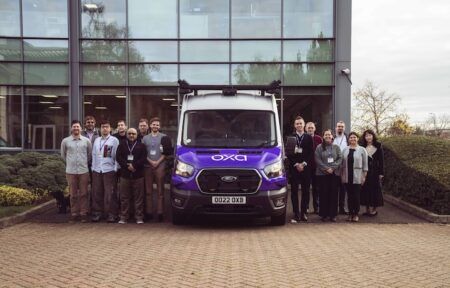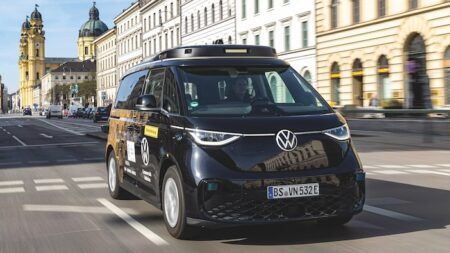Last Sunday (May 2, 2021) Baidu began fully driverless robotaxi services in Beijing without a safety driver behind the steering wheel, marking a landmark step on the road to commercialization of autonomous driving.
The fully driverless Apollo Go Robotaxi service is now operating in Beijing’s Shougang Park – one of the venues for the 2022 Beijing Winter Olympics – and will soon be transporting visitors at the games.
With the ride-hailing service launched during the bustling Labor Day holiday period, Baidu became the first Chinese company offering a fully driverless robotaxi service under commercial operation.
By using the Apollo Go App, users can locate a robotaxi in the vicinity and hail a driverless ride by themselves through a system of unmanned self-service processes. Features including virtual reality navigation and remote car honking can help users to identify the location of the car. To unlock the autonomous vehicles, users are required to scan a QR code and health code on the car for identity verification and pandemic prevention purposes.
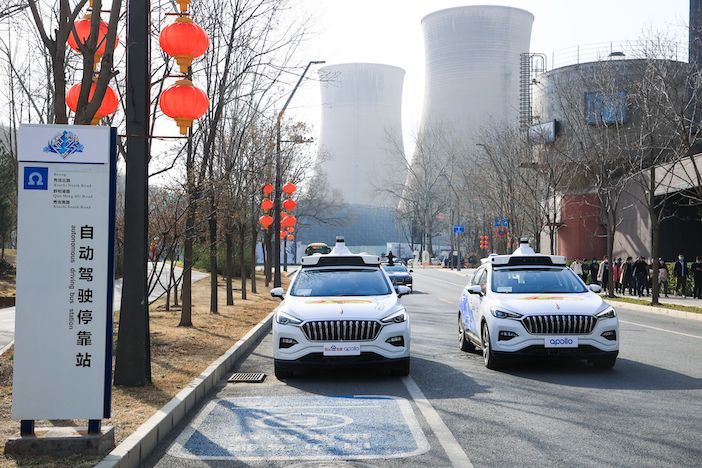
Upon boarding the vehicle and clicking on the “Start the Journey” button, the system will ensure that seat belts are fastened and the doors are shut, the trip only beginning after all the passenger safety protocol checks are completed. With no safety driver at the helm, the 5G Remote Driving Service is present at all times to allow human operators to remotely access the vehicles in the case of exceptional emergencies.
At Beijing Shougang Park, the robotaxis transport users to sports halls, work areas, coffee shops and hotels. During the upcoming Winter Olympics, the Apollo robotaxis will be available to provide shuttle services for athletes and staff.
“Introducing unmanned services is an indispensable stage for the commercialization of autonomous driving, which we achieved only after conducting countless scalable driverless tests in many cities over a long period of time,” says Yunpeng Wang, vice president and general manager of autonomous driving technology at Baidu. “In the future, Baidu Apollo will launch driverless robotaxis in more cities, enabling the public to access greener, low-carbon, and convenient travel services, while continuing to improve the unmanned service process and user experience. The commercialization of autonomous driving can alleviate congestion effectively and help to reach the peak carbon dioxide emissions and achieve carbon neutrality in China.”

Since October last year, Baidu has started autonomous driving tests for the public under trial operations in areas such as Yizhuang, Haidian and Shunyi in Beijing. Baidu Apollo is moving forward to a new stage of scalable commercialized operations with the launch of the fully driverless robotaxi services in the capital, as a starting point of commercialized operations in first-tier Chinese cities. Baidu Apollo recently announced the completion of over 10 million kilometers of road testing for autonomous driving.


